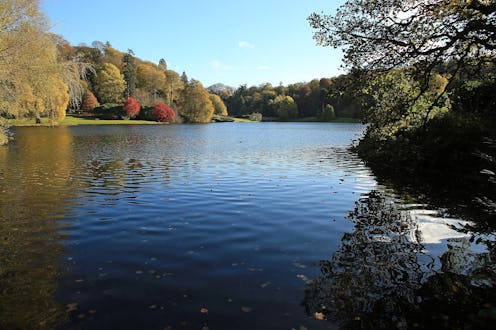News
Kansas Girl Dies From 'Brain-Eating Amoeba'
It's summertime, meaning lots of sunshine, high temperatures, and swimming. But in Kansas, a fatal "brain-eating amoeba" lurks in warm freshwater, and has already claimed the life of a 9-year-old girl. The rare microscopic amoeba, Naegleria fowleri, is usually found in warm freshwater, and enters the human body through the nose. Early symptoms can cause hallucinations and seizures, and eventually vomiting, a bad headache, nausea and fever. At that point, the amoeba spreads quickly and can cause death within just five days.
Even more alarming? It's really rare, and really hard to catch before it's too late.
Out of the 130 cases that have been reported in the last 50 years, only three people have survived it. According to Dr. William Schaffer at Vanderbilt University Medical Center, the infection "finds itself way back in our noses and then can work its way into our central nervous system, around our brains... and once it's there, it just causes destruction."
Yust, an experienced water skier who had her own club dedicated to the sport, contracted the deadly disease during Fourth of July weekend. She swam in a few different bodies of freshwater and died July 9. In a statement, Yust's family said:
Our precious daughter, Hally, loved life and part of her great joy was spending time playing in the water. Her life was taken by a rare amoeba organism that grows in many different fresh water settings. We want you to know this tragic event is very, very rare, and this is not something to become fearful about.
Rare? Yes. But that doesn't mean health officials aren't on alert, and that you shouldn't take your own precautions when swimming in freshwater. (You can't contract the brain-eating amoeba in seawater or pools that are properly maintained). The Kansas Department of Health recommends that you:
- Hold your nose shut, use nose clips, or keep your head above water when taking part in water-related activities in bodies of warm freshwater
- Avoid putting your head under the water in hot springs and other untreated thermal waters
- Avoid water-related activities in warm freshwater during periods of high water temperature
- Avoid digging in, or stirring up, the sediment while taking part in water-related activities in shallow, warm freshwater areas
While alarming and cause for concern, this amoeba is rare and the death toll doesn't compare to the more than 34,000 people who drowned in the United States between 2001 and 2010, according to the Center of Disease Control.
